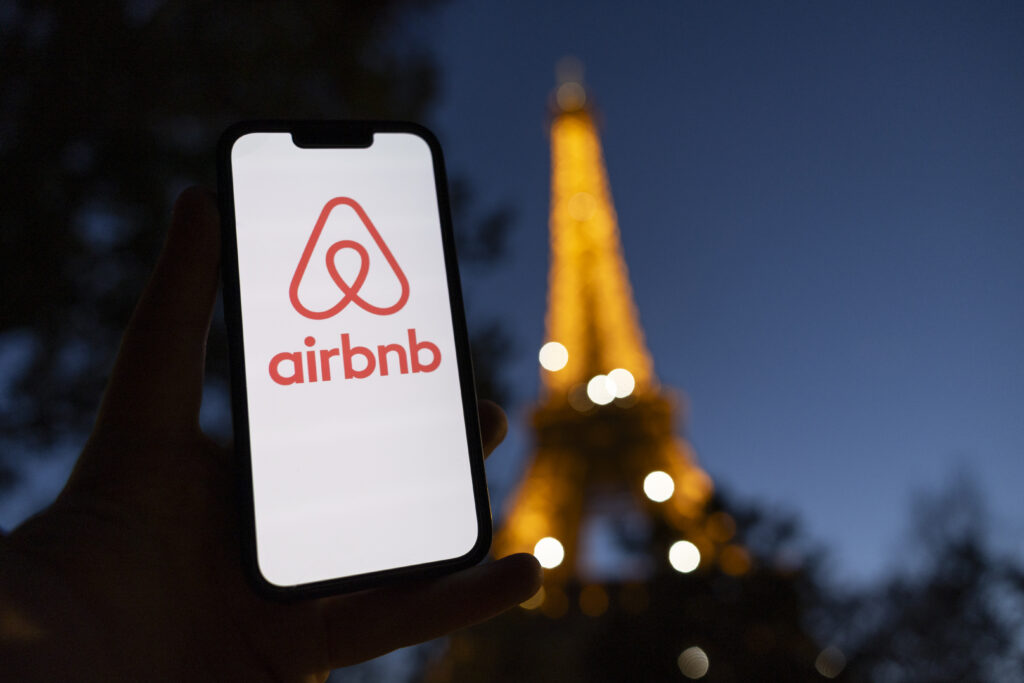Le lancement des soldes refroidi par la météo hivernale
Mises à mal par un calendrier commercial saturé de promotions, les soldes d’hiver ont débuté mercredi dans une France perturbée par la neige et le froid, un contexte météo qui menace la fréquentation pour de nombreux commerçants déjà à la peine.Après un début de saison très doux et un mois de décembre décevant, les commerçants comptent sur cette période de promos qui court jusqu’au 3 février pour limiter la casse.”Il ne faut pas que la première semaine soit trop perturbée, mais dès qu’il y a un peu de neige, plus personne ne sort pour faire du shopping”, relève pour l’AFP Yohann Petiot, directeur général de l’Alliance du commerce, qui représente les grandes enseignes.Vingt-et-un départements ont été placés en vigilance orange pour la neige et le verglas par Météo-France mercredi, contre 32 lors du précédent point, et les transports sont fortement perturbés.A Paris, l’observatoire de la Chambre de commerce et d’industrie (CCI) d’Île-de-France a “observé des commerces vides, même dans les artères les plus commerçantes du 15e et du 6e arrondissement” et rencontré des commerçants “inquiets” par cette météo, qui risque de “pousser les consommateurs à privilégier le commerce en ligne”.Les commerces d’habillement sortent déjà d’un mois de décembre morose en raison notamment de températures clémentes et du Black Friday, qui siphonne une bonne partie des achats de Noël.- Consommateurs déjà “gavés” -“On a des attentes assez fortes sur le mois de janvier, d’autant plus qu’il y a du stock, donc on espère terminer mieux la saison qu’elle n’a commencé”, souligne Yohann Petiot. Les soldes “ne représentent plus l’événement commercial d’il y a 10 ou 20 ans quand les gens attendaient le matin devant la porte”, mais ça reste tout de même un “événement important inscrit dans le calendrier des Français”.Sous un soleil radieux mercredi matin à Strasbourg, loin de la pagaille des zones les plus perturbées par la neige, Frédéric Marchand, étudiant de 22 ans, sort avec un gros sac d’une grande enseigne dans le centre commercial Place des Halles: “Je fais rarement les soldes, je préfère acheter sur internet où il y a souvent des promos, mais comme je n’ai pas cours ce matin, qu’il fait beau et que j’ai besoin d’un nouveau manteau d’hiver, je me suis dit allons voir ! Et j’ai trouvé !”Comme Frédéric, 67% des Français n’attendent pas spécifiquement les soldes, mais restent avant tout opportunistes face à une bonne affaire, selon un sondage de l’application de shopping Joko. Selon ce sondage, 64% comptent profiter des soldes, autant en ligne qu’en boutique.Rencontrée aux Galeries Lafayette de Strasbourg, Ghyslaine, retraitée, fait les soldes “tous les ans” malgré la multiplication des promos toute l’année: “je trouve qu’on peut vraiment faire de bonnes affaires pendant la période officielle des soldes, surtout en hiver”, dit-elle.Si des fidèles restent au rendez-vous, pour les commerçants indépendants, “les soldes ont perdu leur force et leur signification” depuis des années, résume auprès de l’AFP Pierre Talamon, président de la Fédération nationale de l’habillement (FNH).Après les fêtes, les consommateurs arrivent début janvier déjà “gavés par le Black Friday et par des ventes privées”. Ajoutez à cela “les petits prix des plateformes” en ligne et vous avez “beaucoup de commerçants pris dans un étau”, regrette-t-il.Lors du cru 2025, les commerçants indépendants ont vu leur chiffre d’affaires chuter de 5,5% par rapport à janvier 2024 (en comparaison, les grandes enseignes de l’Alliance du commerce ont stagné à -0,2% sur la période). Alors que 2026 devrait suivre cette tendance, la FNH demande au gouvernement de repousser les soldes de trois semaines. Les soldes “peuvent être un levier de croissance” mais il faut les “reconnecter à la réalité des saisons” et leur “redonner du sens en les positionnant en fin de saison”, selon M. Talamon.La Confédération des commerçants de France (CDF) défend elle aussi, dans un communiqué mercredi, un décalage du calendrier, qui ne correspond plus “au rythme réel de la consommation ni aux contraintes économiques des commerçants indépendants”, explique Pierre Bosche, son président.
Le lancement des soldes refroidi par la météo hivernale
Mises à mal par un calendrier commercial saturé de promotions, les soldes d’hiver ont débuté mercredi dans une France perturbée par la neige et le froid, un contexte météo qui menace la fréquentation pour de nombreux commerçants déjà à la peine.Après un début de saison très doux et un mois de décembre décevant, les commerçants comptent sur cette période de promos qui court jusqu’au 3 février pour limiter la casse.”Il ne faut pas que la première semaine soit trop perturbée, mais dès qu’il y a un peu de neige, plus personne ne sort pour faire du shopping”, relève pour l’AFP Yohann Petiot, directeur général de l’Alliance du commerce, qui représente les grandes enseignes.Vingt-et-un départements ont été placés en vigilance orange pour la neige et le verglas par Météo-France mercredi, contre 32 lors du précédent point, et les transports sont fortement perturbés.A Paris, l’observatoire de la Chambre de commerce et d’industrie (CCI) d’Île-de-France a “observé des commerces vides, même dans les artères les plus commerçantes du 15e et du 6e arrondissement” et rencontré des commerçants “inquiets” par cette météo, qui risque de “pousser les consommateurs à privilégier le commerce en ligne”.Les commerces d’habillement sortent déjà d’un mois de décembre morose en raison notamment de températures clémentes et du Black Friday, qui siphonne une bonne partie des achats de Noël.- Consommateurs déjà “gavés” -“On a des attentes assez fortes sur le mois de janvier, d’autant plus qu’il y a du stock, donc on espère terminer mieux la saison qu’elle n’a commencé”, souligne Yohann Petiot. Les soldes “ne représentent plus l’événement commercial d’il y a 10 ou 20 ans quand les gens attendaient le matin devant la porte”, mais ça reste tout de même un “événement important inscrit dans le calendrier des Français”.Sous un soleil radieux mercredi matin à Strasbourg, loin de la pagaille des zones les plus perturbées par la neige, Frédéric Marchand, étudiant de 22 ans, sort avec un gros sac d’une grande enseigne dans le centre commercial Place des Halles: “Je fais rarement les soldes, je préfère acheter sur internet où il y a souvent des promos, mais comme je n’ai pas cours ce matin, qu’il fait beau et que j’ai besoin d’un nouveau manteau d’hiver, je me suis dit allons voir ! Et j’ai trouvé !”Comme Frédéric, 67% des Français n’attendent pas spécifiquement les soldes, mais restent avant tout opportunistes face à une bonne affaire, selon un sondage de l’application de shopping Joko. Selon ce sondage, 64% comptent profiter des soldes, autant en ligne qu’en boutique.Rencontrée aux Galeries Lafayette de Strasbourg, Ghyslaine, retraitée, fait les soldes “tous les ans” malgré la multiplication des promos toute l’année: “je trouve qu’on peut vraiment faire de bonnes affaires pendant la période officielle des soldes, surtout en hiver”, dit-elle.Si des fidèles restent au rendez-vous, pour les commerçants indépendants, “les soldes ont perdu leur force et leur signification” depuis des années, résume auprès de l’AFP Pierre Talamon, président de la Fédération nationale de l’habillement (FNH).Après les fêtes, les consommateurs arrivent début janvier déjà “gavés par le Black Friday et par des ventes privées”. Ajoutez à cela “les petits prix des plateformes” en ligne et vous avez “beaucoup de commerçants pris dans un étau”, regrette-t-il.Lors du cru 2025, les commerçants indépendants ont vu leur chiffre d’affaires chuter de 5,5% par rapport à janvier 2024 (en comparaison, les grandes enseignes de l’Alliance du commerce ont stagné à -0,2% sur la période). Alors que 2026 devrait suivre cette tendance, la FNH demande au gouvernement de repousser les soldes de trois semaines. Les soldes “peuvent être un levier de croissance” mais il faut les “reconnecter à la réalité des saisons” et leur “redonner du sens en les positionnant en fin de saison”, selon M. Talamon.La Confédération des commerçants de France (CDF) défend elle aussi, dans un communiqué mercredi, un décalage du calendrier, qui ne correspond plus “au rythme réel de la consommation ni aux contraintes économiques des commerçants indépendants”, explique Pierre Bosche, son président.
Sous-location illégale: la Cour de cassation reconnaît la responsabilité d’Airbnb
Airbnb, simple hébergeur de contenus ou éditeur? La Cour de cassation a tranché mercredi estimant que la responsabilité de la plateforme pouvait être engagée si des internautes recouraient à ses services pour de la sous-location illicite.Les magistrats de la plus haute juridiction judiciaire ont estimé que “la société Airbnb n’a pas la qualité d’hébergeur internet car elle joue un rôle actif à l’égard des utilisateurs, lui permettant d’avoir connaissance et de contrôler les offres déposées sur sa plateforme”.”Dès lors elle ne bénéficie pas de l’exonération de responsabilité accordée aux hébergeurs et elle peut être tenue responsable si des internautes recourent à sa plateforme pour de la sous-location illicite”, indiquent-ils dans un communiqué.La Cour de cassation devait clarifier ce point après deux décisions en appel contradictoires: l’une à Paris en janvier 2023 où la cour d’appel avait estimé qu’Airbnb avait “largement contribué” à l’infraction commise par une locataire parisienne qui avait sous-loué illégalement son logement.L’autre, rendue par la cour d’appel d’Aix en Provence en septembre 2023, estimait au contraire que la plateforme n’était qu’un simple hébergeur de contenus, et n’était donc pas co-responsable d’une affaire de sous-location illégale dans un logement social.La Cour de cassation s’est notamment appuyée sur le droit européen pour trancher.”Selon la Cour de justice de l’Union européenne, un hébergeur internet doit jouer le rôle de simple +intermédiaire+ en se limitant à fournir de façon neutre un service purement technique et automatique de stockage et de mise à disposition des données fournies par ses clients. L’hébergeur internet ne joue donc aucun rôle actif dans le traitement de ces données: il ne lui en est confié ni la connaissance ni le contrôle”, rappelle la Cour de cassation.Or, “la société Airbnb ne joue pas un rôle neutre à l’égard de ses utilisateurs. Elle s’immisce dans la relation entre +hôtes+ et +voyageurs+: en leur imposant de suivre un ensemble de règles (lors de la publication de l’annonce ou de la transaction) dont elle est en mesure de vérifier le respect; en promouvant certaines offres par l’attribution de la qualité de +superhost+, exerçant ainsi une influence sur le comportement des utilisateurs”.- “Etape majeure” -Concrètement, l’arrêt de la cour d’appel d’Aix est cassé est l’affaire est renvoyée tandis que dans l’affaire parisienne, la Cour de cassation annule l’amende (32.399,61 euros) que devait verser Airbnb et la locataire, et renvoie l’affaire sur ce point, sachant qu’ils avaient été condamnés à verser 58.000 euros d’amende en première instance.”Les procédures judiciaires continuent dans ces deux affaires et nous sommes déterminés à explorer toutes les voies de recours possibles afin que la jurisprudence française reflète les principes européens de régulation des plateformes”, a réagi Airbnb dans une déclaration transmise à l’AFP, estimant que “ces décisions sont contraires au droit européen”.La plateforme assure par ailleurs appliquer “une politique de tolérance zéro” pour les cas de sous-locations illégales “portées à notre attention, allant jusqu’à la suppression des annonces concernées”.Jonathan Bellaïche, avocat de la propriétaire parisienne lésée, salue “une étape jurisprudentielle majeure dans la clarification du régime de responsabilité applicable aux plateformes numériques”.Il estime que “cela peut avoir comme effet de rendre Airbnb co-responsable de tous les abus qu’il peut y avoir sur leur plateforme”.”C’est l’aboutissement de dix ans de bataille”, se réjouit-il auprès d’une journaliste de l’AFP, indiquant avoir défendu pour la première fois un propriétaire victime de sous-location sur Airbnb en 2016, et “ça va changer beaucoup de choses dans le rapport de force”, poursuit-il.L’avocat avait déjà obtenu la reconnaissance du statut d’éditeur pour Abritel en 2024.Il a également fait condamner Airbnb à 8,2 millions d’amende pour des “manquements graves” à la collecte de la taxe de séjour en 2021 et 2022 sur l’île d’Oléron (Charente-Maritime), puis Booking.com (574.000 euros d’amende) et Leboncoin (410.000 euros) pour les mêmes raisons.L’avocat représente également des hôteliers ainsi que la principale organisation patronale de l’hôtellerie, l’Umih, dans une procédure de concurrence déloyale à l’encontre d’Airbnb.
AI helps pave the way for self-driving cars
Even if Elon Musk’s dream of robotaxis for everyone is a long way off, sleek electric cars powered by artificial intelligence packed the Consumer Electronics Show, promising to liberate people from the tedium of driving.Letting go of the steering wheel is no longer a fantasy: Waymo’s robotaxis in the United States and China’s Apollo Go, which has been growing rapidly over the past year, have demonstrated the reliability of fully autonomous driving, where responsibility lies with the machine and not the human.Rivals such as Uber are fast emerging. The ride-sharing giant used the CES event in Las Vegas to debut a Lucid robotaxi, aiming to put a fleet of them to work in San Francisco later this year.Offering the fully autonomous experience — known as Level 4 autonomy — to vehicle owners on a mass scale remains the industry’s goal.”I don’t see it happening for years,” said Marc Amblard, of Orsay Consulting. Only Tensor, a Silicon Valley start-up, is present in Vegas with a Level 4 passenger car. A first model is expected to hit the road in the coming months.Touted as the “first personal robot car on Earth,” it is a luxury vehicle equipped with 34 cameras, five lidar lasers, and over a hundred sensors, with analysts estimating its price tag at around $200,000.Its autonomous driving will be limited. The company currently is authorized to conduct tests in California and could benefit from favorable legislation in Texas, Nevada, and Arizona, as well as its partnership in the United Arab Emirates.- Roadblocks -But regulatory approval and societal acceptance have remained roadblocks to self-driving cars becoming commonplace.”From a technology standpoint, it is there,” said Pier Paolo Porta, marketing director at Ambarella, which specializes in autonomous driving systems.”But from a legal and from a liability standpoint, it is still a gray area.”Given the roadblocks, it is in the area of Level 2 assisted driving — where the driver must be ready to take back control — the industry’s flagship projects are flourishing.And these are going further in terms of automation, largely thanks to advances in AI that make computers more efficient with fewer expensive sensors.Driving where the steering wheel and pedals can be fully operated by a computer, while remaining legally under the driver’s responsibility, is the experience already offered by Musk’s Tesla in the United States with its Full Self-Driving system, and by Xiaomi and BYD in China.- ‘ChatGPT moment’? -It is at this level of autonomy that competition is intensifying.Chip powerhouse Nvidia on Monday unveiled Alpamayo, an AI platform specially designed for autonomous driving, which will be available on electric Mercedes CLA models in the United States this year.”Alpamayo brings reasoning to autonomous vehicles, allowing them to think through rare scenarios, drive safely in complex scenarios and explain their driving decisions,” Nvidia chief executive Jensen Huang said during a presentation at CES.Huang declared that a “ChatGPT moment for physical AI” was here, essentially enabling cars and robots to interact with the real world independently.During a demonstration for AFP in December, a self-driving Mercedes negotiated congested San Francisco traffic with a human safety driver only intervening to navigate around an ambulance stopped in the middle of the road.Unlike autonomous driving systems that rely on mapping data, the Alpamayo system can handle driving on streets that vehicles have not previously encountered.Nvidia rival Qualcomm was at CES with its own autonomous driving software project involving on-board AI powered by its Snapdragon chip.Nissan announced last month that it will soon integrate AI-enabled autonomous driving software from British startup Wayve in much of its vehicle line.All these innovations have the same goal: to offer the feeling of autonomy while leaving legal responsibility to human beings.
200 km/h dans le blanc: à Paris-Orly, la neige déclenche une mission commando
Dans le brouillard et sous les flocons, un convoi de véhicules jaunes avance lentement pour dégager les pistes. À l’aéroport Paris-Orly, les volontaires de l’équipe d’hiver défient mercredi une neige “exceptionnelle”.”On avait une prévision de 3 à 6 centimètres de neige sur huit heures, mais six centimètres sont tombés en une heure et demie”, raconte à l’AFP Jérôme Lauferon, directeur des aires aéronautiques à Orly.Des précipitations brutales et inhabituelles depuis plusieurs années, souligne le responsable. Ce qui relèverait de la routine au Canada ou en Russie déclenche une alerte maximale à Paris où les chutes de neige se font de plus en plus rares et dont les aéroports ne sont pas conçus pour une logistique hivernale lourde.Avant les premiers flocons lundi, la cellule d’anticipation a été mise en place dimanche et fonctionne 24 heures sur 24 tout comme le “poste de commandement neige”. C’est alors que commence l’aventure humaine: la gestion de la neige à Orly repose sur cinq responsables qui s’appuient sur quelque 300 volontaires qui quittent leurs bureaux chez le groupe ADP (Aéroports de Paris) pour affronter les éléments. – “Commando d’hiver” -“Cela fait plaisir de pousser les flocons”, s’enthousiasme Stephen Chasseriaud, 58 ans, chauffeur de déneigeuse. Ancien pilote, actuellement responsable interface-travaux voierie, il a passé son permis poids lourds pour rejoindre il y a 12 ans les rangs des volontaires du “service hivernal”. “On est en mode commando”, sourit-il, un souvenir de son service militaire et du stage commando grand froid. “Cela permet de voir une autre facette de l’aéronautique. C’est une expérience humaine riche, on se sent utile”. Même ressenti pour Benjamin Sinegre, responsable de stratégie environnementale à Paris-Orly et lui aussi volontaire, content de quitter son bureau pour s’installer au commandement neige. “C’est enivrant de vivre l’instant présent et d’aider l’aéroport à tourner”, confie-t-il.Sa mission: dispatcher les cinq “trains neige”, chacun composé de plusieurs véhicules, entre les pistes et les voies de circulation des avions. – 200 km/h au décollage -Robin Durand, responsable de la cellule de l’anticipation, embarque une équipe de AFP à bord d’une voiture jaune qui circule sur les pistes et supervise le déneigement. A la tête de chaque “train neige” un véhicule convoyeur ouvre la voie, guidant cinq déneigeuses équipées de larges lames pour pousser la neige. Derrières elles, un véhicule qui récupère la neige et l’éjecte hors des pistes et finalement un épandeur qui répand du formiate de potassium, équivalent du sel routier, mais moins corrosif pour les avions et plus efficace contre la glace. “Ce produit sert à abaisser le point de congélation: là où l’eau gèle normalement à 0°C, le sel jusqu’à -5°C et le formiate protège jusqu’à -15 ou -20”, explique-t-il. Dans les aéroports l’enjeu est crucial en cas de chute de neige et de verglas: si sur une route, les voitures peuvent adapter leur vitesse en fonction des conditions climatiques, un avion en phase de décollage ou d’atterrissage doit atteindre la vitesse de 200 km/h en toute circonstance. Les pistes longues sont déneigées en 35 à 45 minutes en moyenne et pendant la durée du déneigement, le trafic sur la piste est interrompu. Ce qui réduit les capacités de l’aéroport et peut causer la réduction du nombre de vols des compagnies. Une centaine de vols ont ainsi été annulés mercredi matin dans les aéroports parisiens, dont une cinquantaine à Paris-Orly sur 517 sur une journée. “On n’est pas surpris par la neige”, assure Coralie Chabot, responsable du centre opérationnel en ajoutant que les entraînements ont été menés “toutes les semaines” depuis septembre.”La neige comme aujourd’hui est assez exceptionnelle et nous se sommes pas dimensionnées en termes d’équipes”, ni en termes de postes de stationnement pour les avions, conclut-elle.
US seizes Russia-flagged oil tanker chased to North Atlantic
The United States on Wednesday seized a Russian-flagged oil tanker in the North Atlantic after pursuing it from off the coast of Venezuela, in an operation condemned by Moscow.Washington says the tanker is part of a so-called shadow fleet that carries oil for countries such as Venezuela, Russia and Iran in violation of US sanctions, and seized it despite the ship being escorted by the Russian navy.The vessel had thwarted an earlier attempt to board it last month near Venezuela, where a US raid on Saturday toppled the country’s authoritarian president, Nicolas Maduro.”The vessel was seized in the North Atlantic pursuant to a warrant issued by a US federal court,” US European Command, which oversees American forces in the region, said in a statement on X.After the operation, Pentagon chief Pete Hegseth posted that the US blockade on Venezuelan oil was in full effect “anywhere in the world.”Russia’s Transport Ministry slammed the seizure, saying “freedom of navigation applies in waters on the high seas, and no state has the right to use force against vessels duly registered under the jurisdiction of other states.”The US military also announced a second sanctioned tanker ship had been seized in the Caribbean Sea.Homeland Security chief Kristi Noem posted on X that both vessels “were either last docked in Venezuela or en route to it,” and included a video of US forces roping down from a helicopter onto an unidentified ship and proceeding toward the bridge with weapons ready.- US to control oil sales ‘indefinitely’ -Last weekend, US special forces snatched Maduro and his wife from Caracas and flew them to New York to face trial on drug charges.Since then, President Donald Trump has said that the United States will “run” Venezuela and US companies will control its critical oil industry.In Caracas, after several days of shuttered shops and intermittent public transport, the capital’s streets were again busy Wednesday with pedestrians, street vendors, cars and motorbikes.The North Atlantic operation came despite Russia reportedly sending a submarine and other naval assets to escort the empty tanker and saying the vessel was sailing under the Russian flag.The vessel, formerly known as the Bella-1, in recent weeks switched its registration to Russia, changed its name to the Marinera and the tanker’s crew reportedly painted a Russian flag on the tanker.It had been en route to Venezuela before it evaded the US blockade, and has been under US sanctions since 2024 over alleged ties to Iran and Hezbollah.Trump said Tuesday that Venezuela said 30-50 million barrels of “high‑quality, sanctioned” Venezuelan crude will be shipped to US ports, with the revenue — perhaps more than $2 billion at current market prices — placed under his personal control.US Energy Secretary Chris Wright added Wednesday that Washington will control sales of Venezuelan oil “indefinitely.”It was not clear whether Venezuela’s new ruler — interim president Delcy Rodriguez — had agreed to hand over the oil, how the plan would work, or what its legal basis would be.Rodriguez — a long-time member of Maduro’s inner circle as vice president and energy minister — has vowed cooperation with the United States amid fears that Trump could pursue wider regime change.






